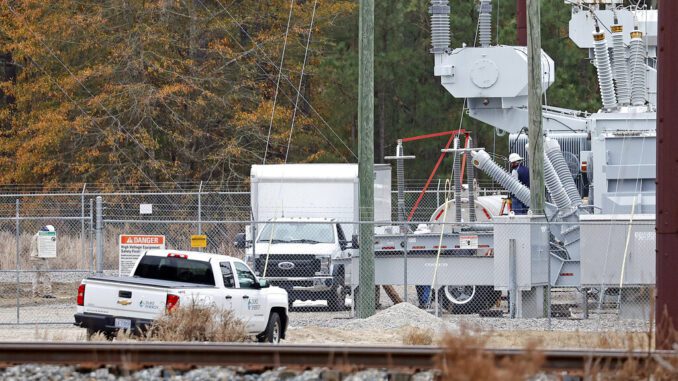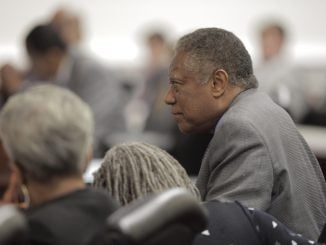
RALEIGH — Bills with the intent of protecting energy facilities in the state were filed in both chambers of the General Assembly last week.
The bills follow multiple attacks on energy substations in North Carolina in Carteret, Moore, and Randolph Counties.
House Bill 21, titled the Energy Security Act 2023, was filed by Rep. Ben Moss (R-Moore). The bill would create a new statute that requires use of security systems by public utilities at substation locations in order to combat security threats and vandalism.
“We must send a message that the would-be actors of these attacks will not be tolerated, and perpetrators will be held responsible for the chaos and the damage they create,” McInnis said during a legislative press conference.
The House bill also requires the security systems be operational 24 hours a day. If passed and signed by the governor, the law would be effective July 1, 2024.
Senate Bill 58, titled Protect Critical Infrastructure, was filed by Sens. Tom McInnis (R-Moore), Danny Britt (R-Robeson), and Paul Newton (R-Cabarrus). The bill would add new statutory language and penalties making it “unlawful to knowingly and willfully destroy, injure, or otherwise damage, or attempt to destroy, injure, or otherwise damage an energy facility.”
“We must send a message that the would-be actors of these attacks will not be tolerated, and perpetrators will be held responsible for the chaos and the damage they create,” Sen. Tom McInnis (R-Moore) said during a press conference discussing the bill.
Violators would be guilty of a Class C felony and could be ordered to pay a fine of $250,000. Each violation constitutes a separate punishable offense and the injured party can seek to recover “treble damages, costs, and attorneys’ fees” from the violator and anyone acting as an accessory to the crime. Treble damages mean that a court is allowed to award up to three times the damages in certain cases.
Newton, referring to recent attacks on state power facilities, said current laws on the books were “ineffective” and “They did not deter this crime.”
“If you are contemplating destroying electrical infrastructure or other critical infrastructure in North Carolina, don’t do it,” Newton said. “You are going to go to jail and you are going to pay an extraordinary amount of money as a result of your activities.”
Penalties for trespassing on energy facility property or any kind of public water facility are increased in the bill from a Class A1 misdemeanor to a Class I felony. Injuring wires and other fixtures of telephone and broadband companies will go from a Class I Felon to a Class C felony.
Britt noted during the press conference that a Class C felony carries a possible sentence of 123 months, or over 10 years, in prison.
The new penalties would go into effect on Dec. 1, 2023, if the bill passes and is signed by the governor.
“Protecting our infrastructure is a top priority, so we can deliver the essential service our customers and communities rely on,” Duke Energy spokesman Jeff Brooks said in a related statement. “Our partnership with the government is a critical element of that commitment. We look forward to participating in the conversation around how to deter attacks on the electric grid as we work to continually enhance protections for our infrastructure.”



